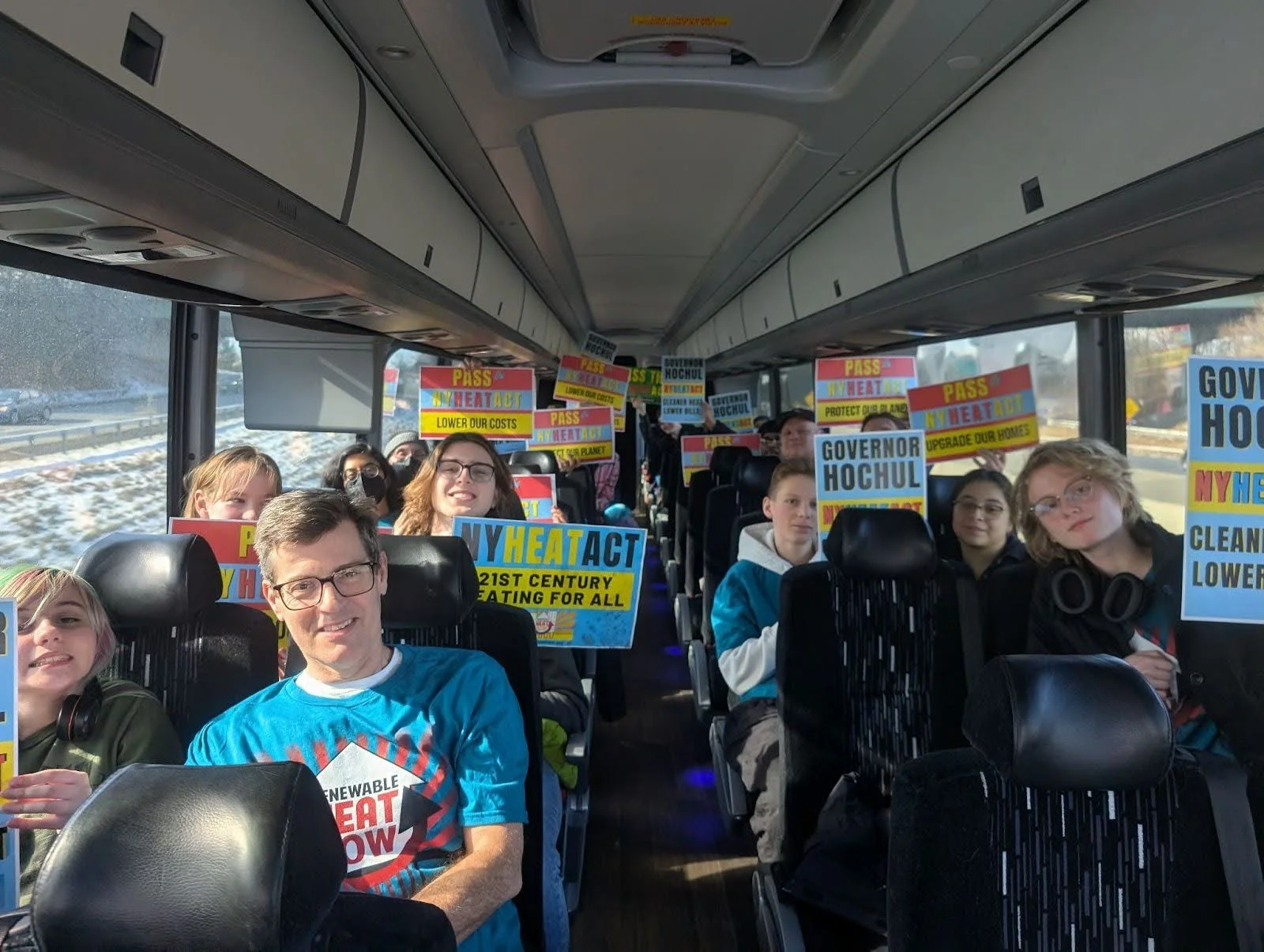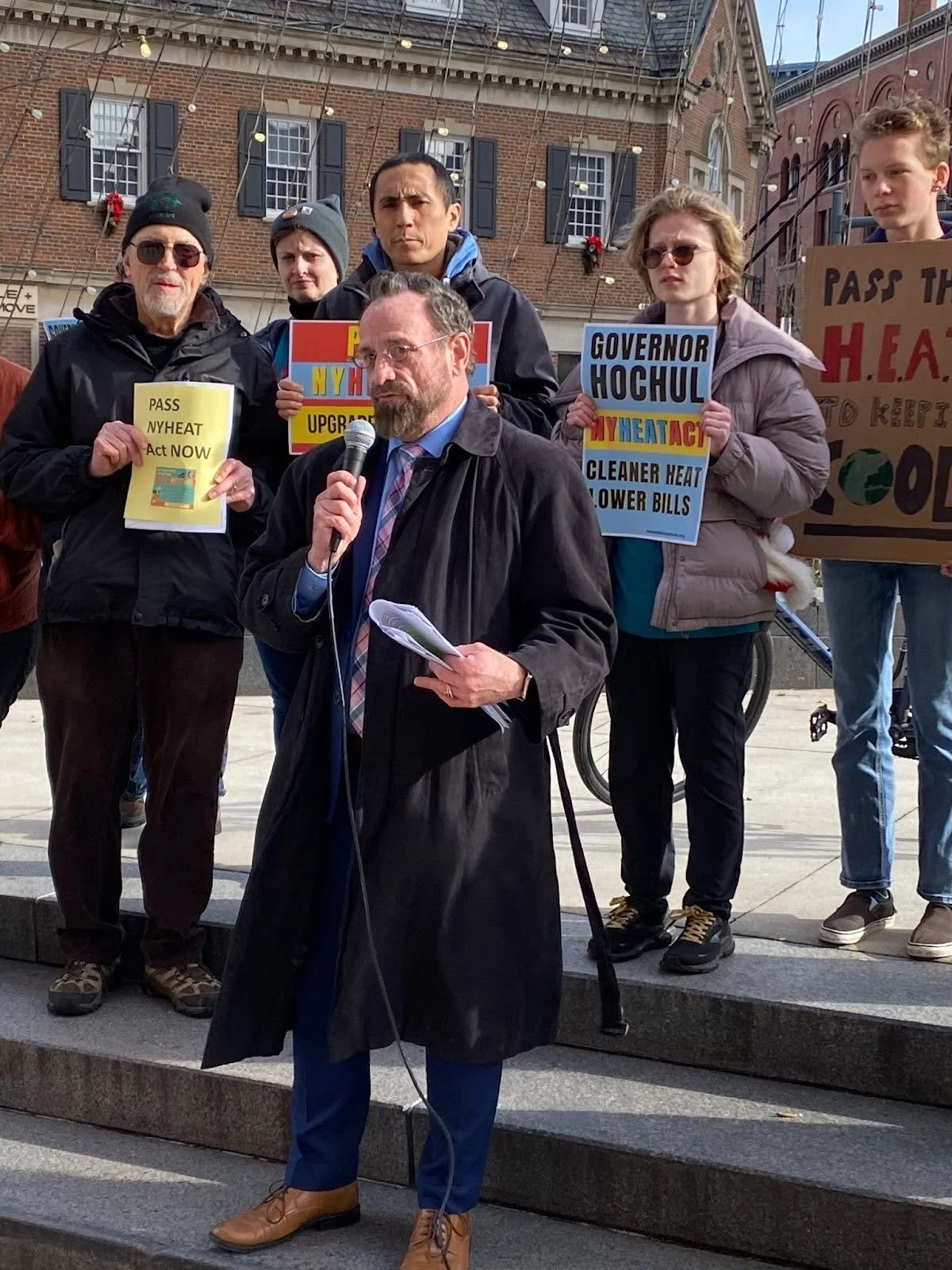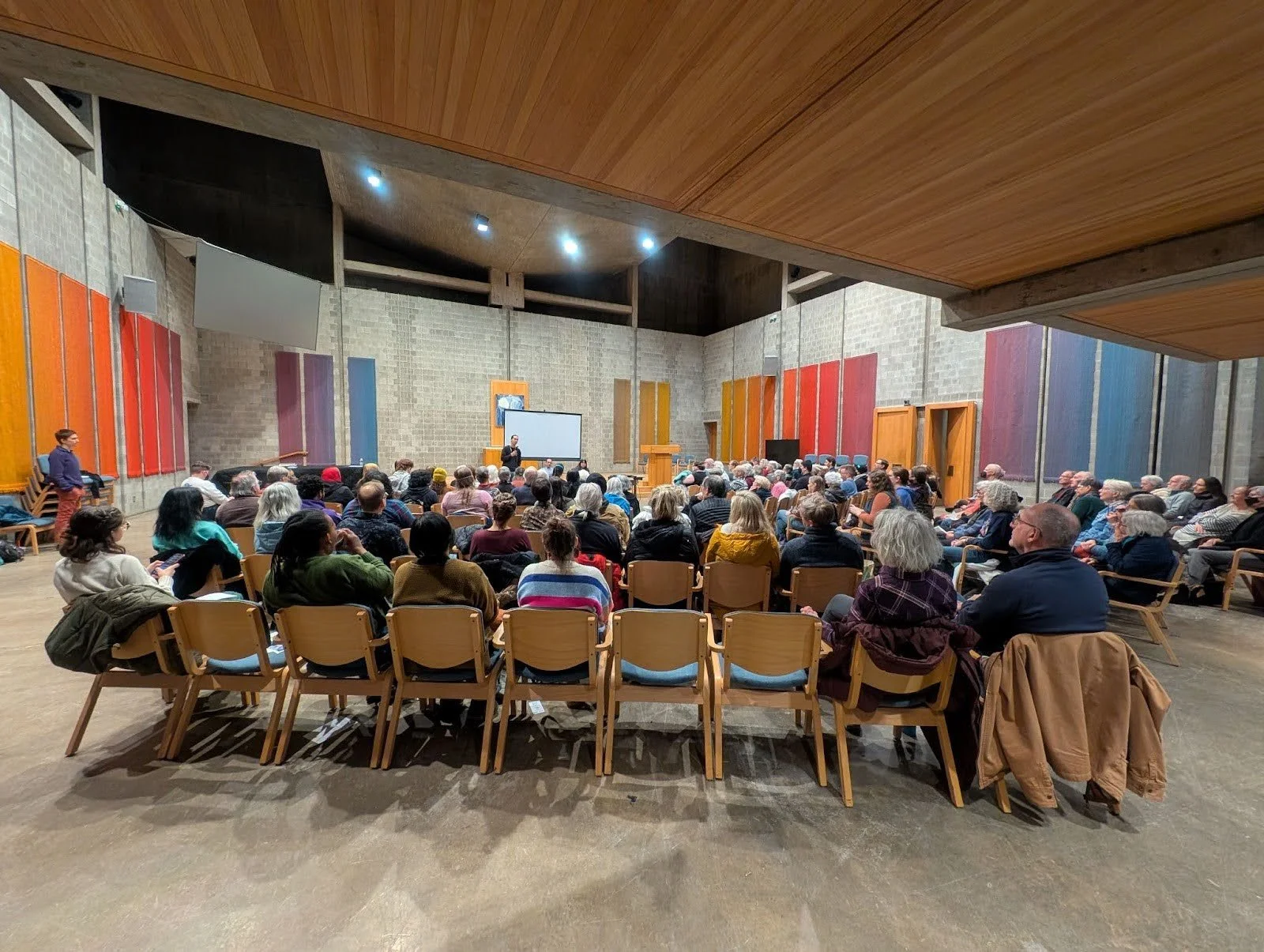
Students from the Harley School and other climate advocates travel to Albany to support the NY HEAT Act, February 2025.

New York State climate advocates at the State Capitol, January 2025. Grandell and Scott Logan address the crowd.

Assemblymember Harry Bronson and local climate advocates at a press conference in support of the NY HEAT Act, Rochester, December 2024.

Monroe County community members at a screening of “Unheard Voices,” February 2025. Grandell Logan addresses the audience.
Policy advocacy remains a cornerstone of the Accelerator’s work to drive systemic climate change solutions across the Genesee-Finger Lakes region and New York State. Building on the foundation established in FY 23–24 with the launch of the Climate Advocacy Network and the publication of a formal policy agenda, FY 24–25 focused on deepening relationships with elected officials, expanding volunteer mobilization, and advancing equitable climate policies statewide.
This fiscal year, the Accelerator coordinated and attended 29 legislative meetings, a marked increase from last year, and organized 76 advocacy opportunities for volunteers, including press conferences, teach-ins, and trips to Albany. Volunteers contributed 954 hours advocating for policy change, supporting bills like the NY HEAT Act and the Just Cap & Invest Program. Additionally, the Accelerator submitted 33 public comments and letters of support, maintaining a strong presence in statewide climate advocacy. Local coalition-building efforts engaged 5 core partner organizations in Rochester, complementing the 400+ statewide partners reached through NY Renews and Renewable Heat Now.
These efforts strengthened the regional climate movement by fostering relationships with Indigenous and rural communities, amplifying the voices of underrepresented stakeholders, and promoting equitable climate policy outcomes. The Accelerator’s advocacy contributed to legislative victories, including the passage of a bill ending the “100 Foot Rule” under the NY HEAT Act and progress on the Just Cap & Invest Program through public hearings. Volunteer engagement and coalition partnerships created tangible pathways for community members to participate in climate action, building momentum for sustained advocacy.
In FY 25–26, the Accelerator will continue advancing statewide climate policies, including ensuring the Governor signs the “100 Foot Rule” bill and monitoring implementation of the Cap & Invest Program. Coalition-building efforts and volunteer engagement will expand further, including active participation in the 2025 NYSEG/RG&E rate case. The Accelerator’s commitment to equitable, inclusive, and impactful climate advocacy remains strong, with opportunities for the community to join and shape the movement.
